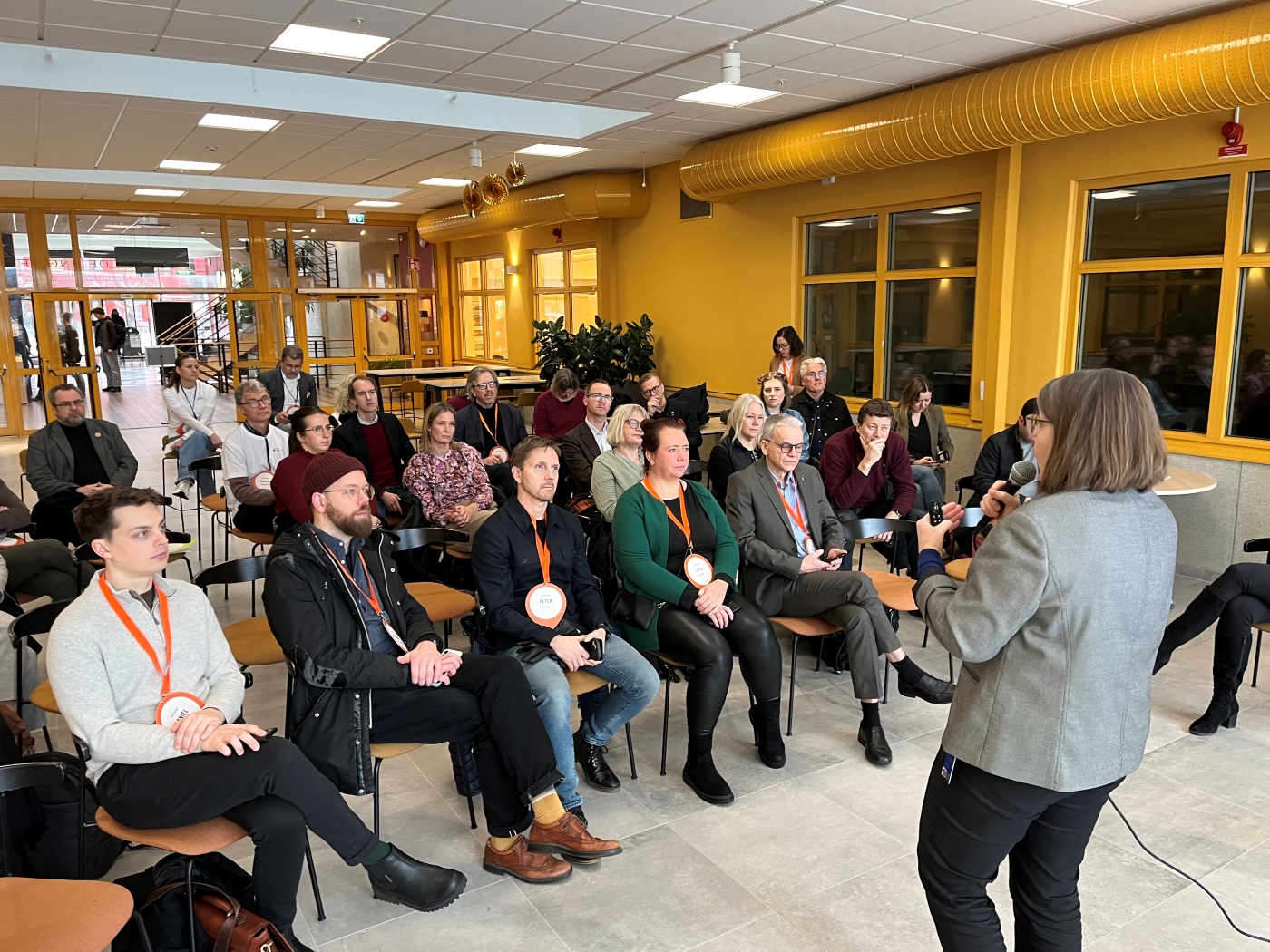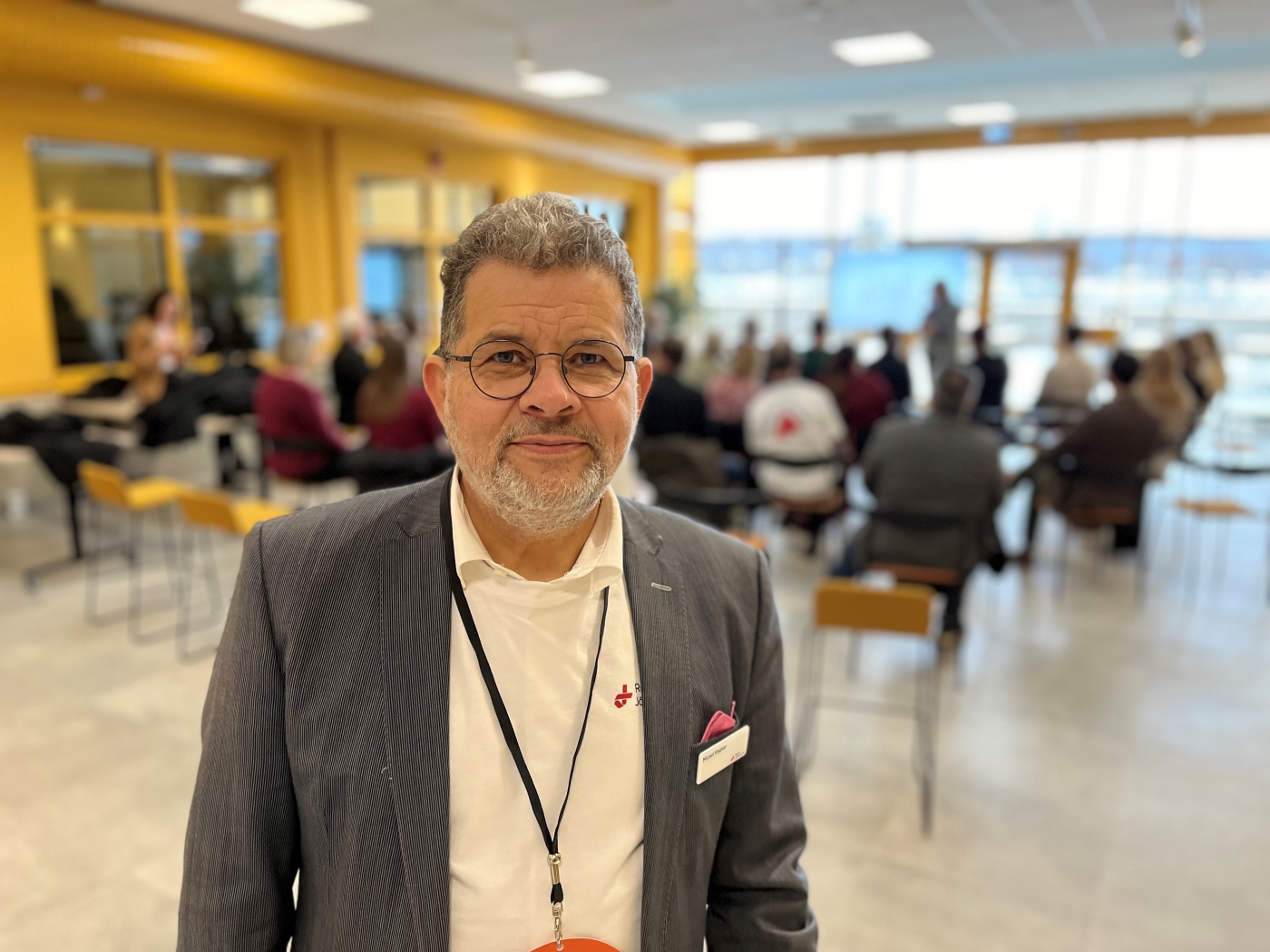Cooperation and regional development in focus

Kerstin Johansen, Associate Dean of Research at JTH and Program Manager for SPARK, explained to the visitors that SPARK can contribute to regional development.
On 7 February, 50 people who work with regional development in Region Jönköping County and other authorities in the country visited the the School of Engineering at Jönköping University (JU) to learn about the school's cooperation with companies through the research and education environment SPARK.
The visit was arranged at the samte time as Region Jönköping County had a conference with the theme of the location's importance for regional development.
"Within SPARK you work very close to companies and it is clear how important the location is for good cooperation. JTH is a world leader in foundry technology and the entire process of product development and material development is done locally, says Micael Ragnar, regional developer at Region Jönköping County.
Good examples from JTH
He thought it was interesting to come to JTH and hoped to inspire the conference participants who took part in the visit to take good examples from SPARK with them to work on at home. He mentions that many companies in Jönköping County are good at seeing the opportunities and taking advantage of what JTH and SPARK have to offer in form of competence development, product development, innovation and more. Kerstin Johansen, head of research at JTH and program manager for SPARK, thinks that the visit from Region Jönöping County with several authorities shows the importance that JTH contributes to regional development through SPARK in terms of business, skills and community development.
"The very core of SPARK's operations"
"By supporting the development of increased knowledge content in processes and products, we contribute to strengthening the global competitiveness of Swedish industry. We see that research and training within SPARK is based on the needs of both regional and other Swedish companies. Therefore, co-production is the very core of SPARK's operations, says Kerstin Johansen.
Linda Bergqvist, External Relations Manager at JTH, emphasizes that JTH has always worked closely with industries to ensure that the school has relevant training and research in demand. "The fact that all our undergraduate students do internships is just one way to ensure that the students get to test the theory in practice and also start building networks already during their studies, says Linda Bergqvist.

Micael Ragnar, regional developer at Region Jönköping County.


